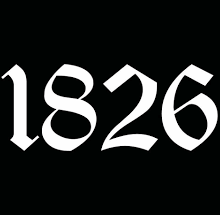
FLORIDA LEGISLATIVE UPDATE: SENATE BILL SB 1826 “HUMAN TRAFFICKING” OFFICIALLY BECOMES LAW AS OF JULY 1, 2021
Governor DeSantis signed a new law on June 29, 2021, effective July 1, 2021, that extends new protections to victims of human trafficking. The original Senate Bill SB 1826 was primarily sponsored by Florida State Senator Diaz and was unanimously passed by both the Florida House and Senate in the 2021 Spring Legislative session. Among other things, the new law notably establishes a specific statutory privilege between human trafficking victims and human trafficking advocates or trained volunteers meeting certain definitions and training requirements. The new law is also intended to facilitate expunction of criminal records by removing certain fees and other requirements. Further details appear below.
PRIVILEGED COMMUNICATIONS:
The new law establishes a specific statutory privilege for communication between human trafficking victims and human trafficking advocates or trained volunteers (similar to a doctor-patient privilege). The law provides that communication between a human trafficking victim advocate or trained volunteer and a human trafficking victim is “confidential,” if it is not intended to be disclosed to third persons, except to specified persons. A human trafficking victim has the privilege to refuse to disclose, and prevent any other person from disclosing such confidential communication or record made in the course of advising, counseling, or providing services to the victim.
EXPANDED DEFINITIONS:
The new law amends existing law, to expand the definition of “human trafficking,” to include the “purchasing, patronizing, [or] procuring” another person for the purpose of exploitation of that person.
Additionally, the bill defines the following terms:
“Anti-human trafficking organization” means a registered public or private agency that offers assistance to victims of the offense of human trafficking, as defined in s. 787.06(2).
“Human trafficking victim” means a person who consults a human trafficking victim advocate or a trained volunteer for the purpose of securing advice, counseling, or services concerning a need arising from an experience of human trafficking exploitation.
“Human trafficking victim advocate” means an employee of an anti-human trafficking organization whose primary purpose is to provide advice, counseling, or services to human trafficking victims and who complies with the training requirements under subsection (5).
“Trained volunteer” means a person who volunteers with an anti-human trafficking organization and who complies with the training requirements under subsection (5).
“Obtain,” is amended to mean “in relation to labor, commercial sexual activity, or services, to receive, take possession of, or take custody of another person or secure performance thereof.”
TRAINING REQUIREMENTS UNDER SUBSECTION (5):
The new law provides training requirements for human trafficking victim advocates and trained volunteers. Advocates and trained volunteers shall:
a) Complete 24 hours of human trafficking training delivered by the Office of the Attorney General, the Bureau of Criminal Justice Programs and Victim Services, and the Florida Crime Prevention Training Institute.
b) Within 3 years after completing the training required under paragraph (a), complete an 8-hour human trafficking update course.
EXPANDED SCOPE OF PROTECTION TO INCLUDE THOSE BELIEVED TO BE MINORS:
The law expands the scope of specified human trafficking offenses relating to children under 18 years of age to include an adult believed to be under 18 years of age.
AFFIRMATIVE PRO-PROSECUTION POLICY:
The law provides that the Legislature encourages each state attorney to adopt a pro-prosecution policy for human trafficking offenses, and requires the state attorney to determine whether to file, non-file, or divert criminal charges even when there is no cooperation from a victim or over the objection of the victim, if necessary.
HUMAN TRAFFICKING VICTIM RECORD EXPUNCTION:
Clerks of court are now prohibited from charging certain fees for petitions for expunction of human trafficking victim criminal history records. Additionally, a petition seeking expunction of more than one case may now be a single petition. The new law also deletes a requirement that a petitioner under the former applicable statute have no other expunction or any sealing petitions pending.
EXPANSION OF OFFENSES REQUIRING PROBATION:
The law also expands the list of offenses in which a court must impose special conditions on probationers or community controllees who are placed under supervision or on community control or sex offender probation for committing a specified human trafficking offense on or after a certain date.
Sources:
https://flsenate.gov/Session/Bill/2021/1826
https://www.flsenate.gov/Committees/billsummaries/2021/html/2388
https://flsenate.gov/Session/Bill/2021/1826/BillText/er/PDF





